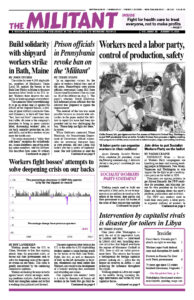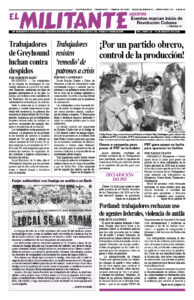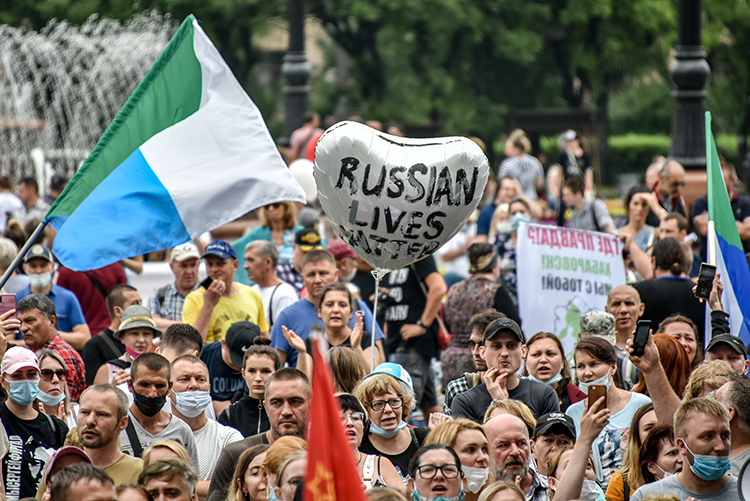Tens of thousands of working people in Khabarovsk, a city of 600,000 in Russia’s Far East, demonstrated Aug. 1, above, over the Kremlin’s July 9 arrest of elected Provincial Gov. Sergei Furgal. The protests have continued for weeks, initially calling for Furgal’s release and reinstatement, but now also demanding the resignation of Russian President Vladimir Putin. This is the most sustained political protest movement during Putin’s 20-year rule.
Putin just organized a plebiscite that allows him to remain in office until 2036. Toilers there face a deepening capitalist economic crisis, exacerbated by the fall of oil prices, Washington’s sanctions and Moscow’s ineffectual response to the coronavirus epidemic. The marches have not been attacked by the police, unlike smaller protests led by Putin’s more traditional opponents in Moscow and other large cities in the west.
“This is not Moscow, this is not St. Petersburg. This is the Far East,” Zoya, a 15-year-old student, told the Aug. 2 Financial Times. “People here are different and we don’t want to be told what to do by Moscow.”
“We are the power here,” chanted thousands as they marched through the center of the former capital of Russia’s sprawling hinterland along the Pacific coast. The Khabarovsk Krai region is seven time zones ahead of Moscow and stretches from the border with China to the Arctic. After Furgal’s election, Putin had the capital of the Far Eastern Federal District moved to Vladivostok.
Furgal humiliated Putin’s candidate in the elections two years ago. The revival of charges against him, that he organized the killing of rivals in business conflicts almost two decades ago, whether true or not, is widely seen as politically motivated.
Many of the careers of Russia’s current political leaders — including Putin — grew out of fierce battles between competing cartels seeking wealth and power, looting the old state industries after the fall of the Soviet Union.
Furgal’s arrest is part of the Kremlin’s rolling crackdown since the plebiscite. Turnout in the Far East was among the lowest in the country.


